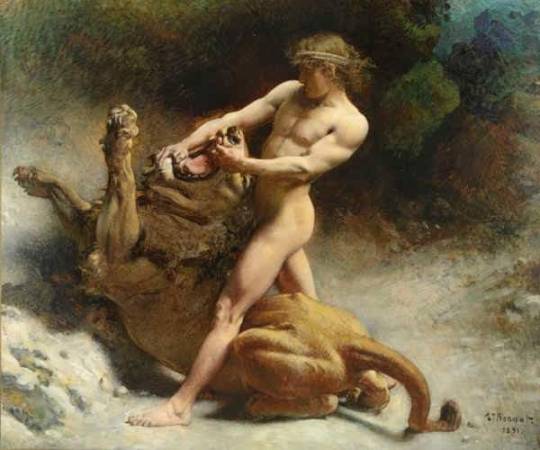#leon bonnat
Text
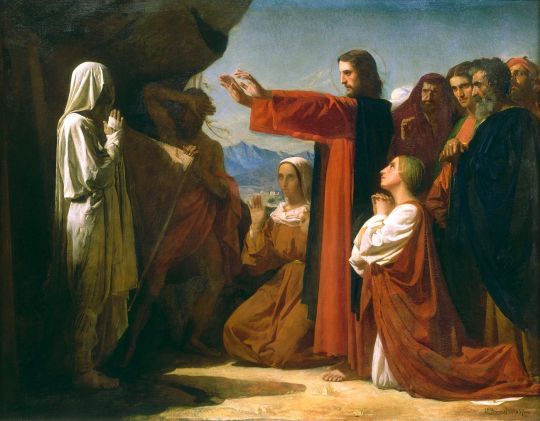
The Raising of Lazarus, Léon Bonnat, 1857
#Lent#lectionary#art#art history#Leon Bonnat#religious art#Biblical art#Christian art#Christianity#New Testament#Gospels#Gospel of John#Lazarus#Raising of Lazarus#Miracles of Christ#French art#19th century art#color on canvas
386 notes
·
View notes
Text
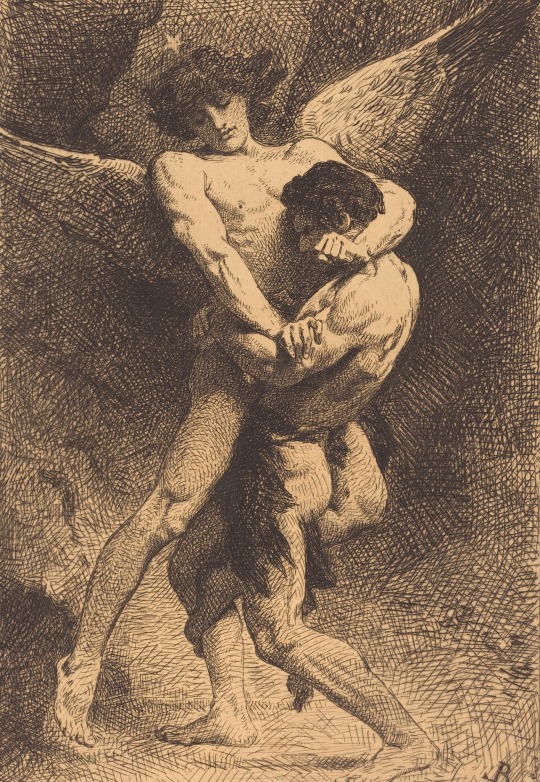
‘La Lutte de Jacob’ (Jacob Wrestling with the Angel) by Léon Bonnat, c. 1876.
#vintage art#engraving#classic art#art#moody art#leon bonnat#jacob wrestling with the angel#art history#art details#nude art
208 notes
·
View notes
Text
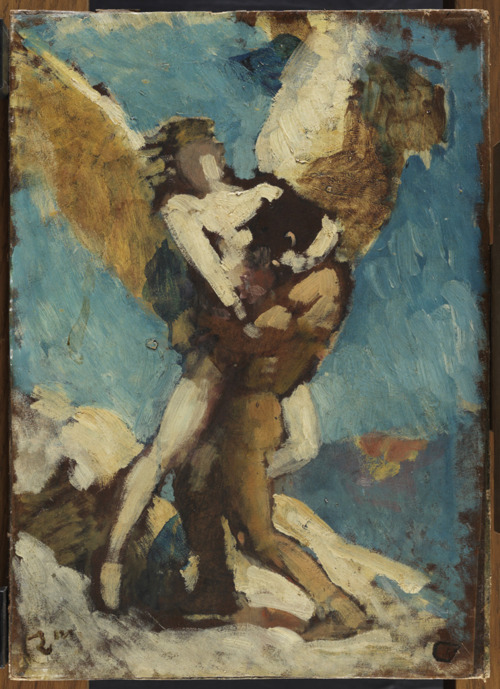
Léon Joseph Bonnat, Jacob wrestling with the Angel, 1876
131 notes
·
View notes
Text
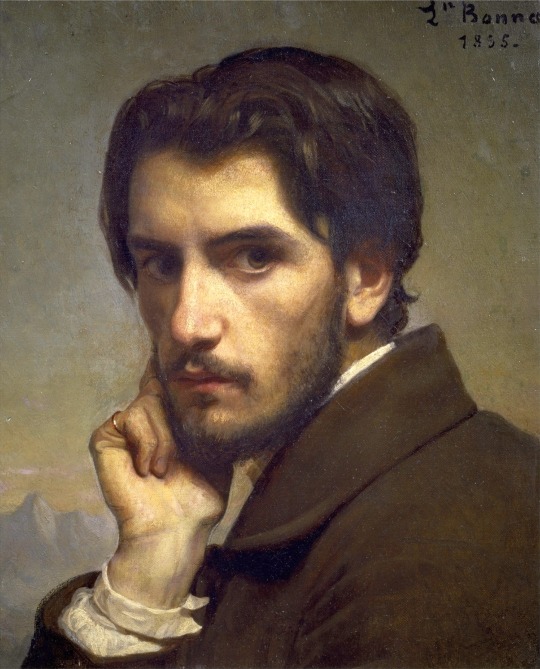
source: @artextual
Léon Bonnat, Self portrait, 1835.
19 notes
·
View notes
Text

'Self Portrait' as painted in 1899 by French painter Leon Bonnat (1833-1922).
3 notes
·
View notes
Text
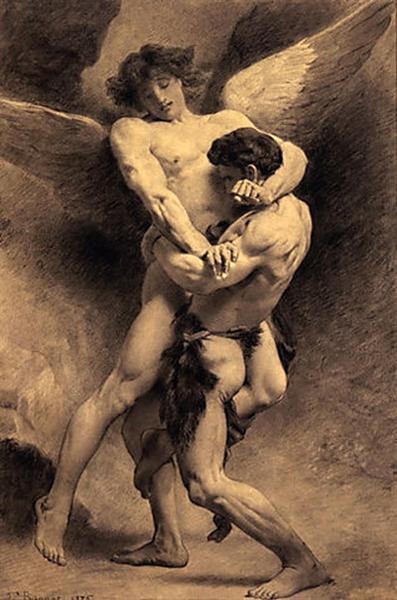
"An inherited belief is as good as an ornament, tempt-less virtue is a dull blade and the benevolence of the weak is as good as patching a ragged garment with silk."
- Unkown
Painting by Leon Bonnat
#literature#quote#reading#writing#book#novel#author#writer#unkonwn#art#artist#painting#leon bonnat#belief#virtue#temptation#blade#benevolence#weak#silk#ornament
30 notes
·
View notes
Text

Self Portrait (1885)
Leon Bonnat
4 notes
·
View notes
Photo

Léon Bonnat (French, 1833-1922)
Portrait of Emanuella Pignatelli, Countess Potocka, 1880
#Léon Bonnat#leon bonnat#art#french#france#french art#emanuella pignatelli#countess potocka#fine art#european history#european#brunette#female portrait#female#woman#fashion#countess#1800s
12 notes
·
View notes
Photo
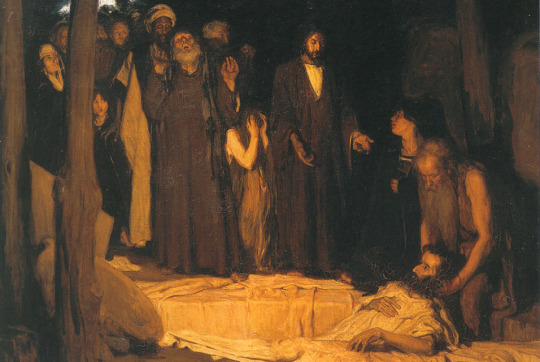


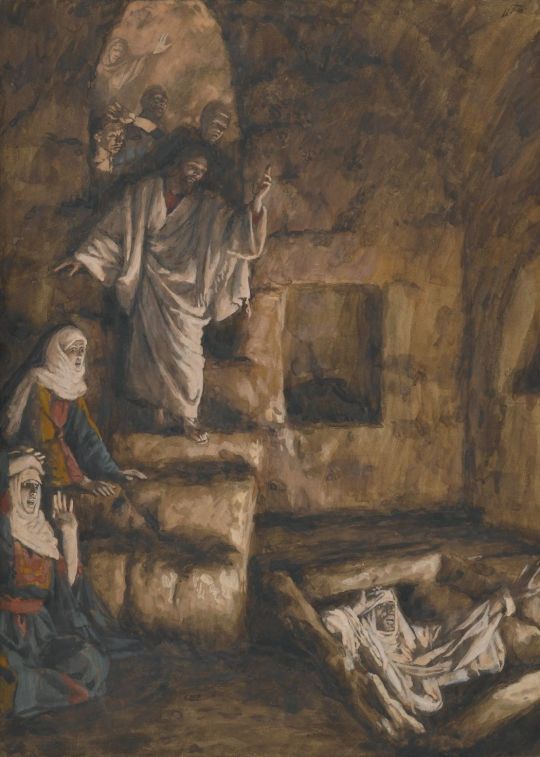


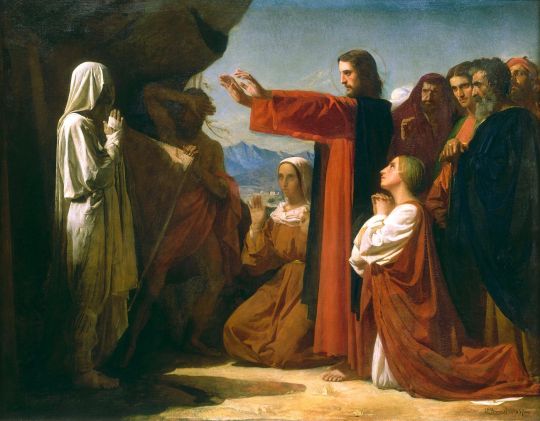
Behold, I stand at the door and knock: I know all the things you do, and I have opened a door for you that no one can close. You have little strength, yet you obeyed my word...
“Most truly I say to YOU, He that does not enter into the sheepfold through the door but climbs up some other place, that one is a thief and a plunderer. But he that enters through the door is shepherd of the sheep. The doorkeeper opens to this one, and the sheep listen to his voice, and he calls his own sheep by name and leads them out. When he has got all his own out, he goes before them, and the sheep follow him, because they know his voice. A stranger they will by no means follow but will flee from him, because they do not know the voice of strangers.” Jesus spoke this comparison to them; but they did not know what the things meant that he was speaking to them.
Therefore Jesus said again: “Most truly I say to YOU, I am the door of the sheep. All those that have come in place of me are thieves and plunderers; but the sheep have not listened to them. I am the door; whoever enters through me will be saved, and he will go in and out and find pasturage. The thief does not come unless it is to steal and slay and destroy. I have come that they might have life and might have it in abundance. I am the fine shepherd; the fine shepherd surrenders his soul in behalf of the sheep. The hired man, who is no shepherd and to whom the sheep do not belong as his own, beholds the wolf coming and abandons the sheep and flees—and the wolf snatches them and scatters them — because he is a hired man and does not care for the sheep. I am the fine shepherd, and I know my sheep and my sheep know me, just as the Father knows me and I know the Father; and I surrender my soul in behalf of the sheep.
“And I have other sheep, which are not of this fold; those also I must bring, and they will listen to my voice, and they will become one flock, one shepherd. This is why the Father loves me, because I surrender my soul, in order that I may receive it again. No man has taken it away from me, but I surrender it of my own initiative. I have authority to surrender it, and I have authority to receive it again. The commandment on this I received from my Father.”
Again a division resulted among the Jews because of these words. Many of them were saying: “He has a demon and is mad. Why do YOU listen to him?” Others would say: “These are not the sayings of a demonized man. A demon cannot open blind people’s eyes, can it?”
At that time the festival of dedication took place in Jerusalem. It was wintertime, and Jesus was walking in the temple in the colonnade of Sol’o·mon. Therefore the Jews encircled him and began to say to him: “How long are you to keep our souls in suspense? If you are the Christ, tell us outspokenly.” Jesus answered them: “I told YOU, and yet YOU do not believe. The works that I am doing in the name of my Father, these bear witness about me. But YOU do not believe, because YOU are none of my sheep. My sheep listen to my voice, and I know them, and they follow me. And I give them everlasting life, and they will by no means ever be destroyed, and no one will snatch them out of my hand. What my Father has given me is something greater than all other things, and no one can snatch them out of the hand of the Father. I and the Father are one.”
Once more the Jews lifted up stones to stone him. Jesus replied to them: “I displayed to YOU many fine works from the Father. For which of those works are YOU stoning me?” The Jews answered him: “We are stoning you, not for a fine work, but for blasphemy, even because you, although being a man, make yourself a god.” Jesus answered them: “Is it not written in your Law, ‘I said: “YOU are gods”’? If he called ‘gods’ those against whom the word of God came, and yet the Scripture cannot be nullified, do YOU say to me whom the Father sanctified and dispatched into the world, ‘You blaspheme,’ because I said, I am God’s Son? If I am not doing the works of my Father, do not believe me. But if I am doing them, even though YOU do not believe me, believe the works, in order that YOU may come to know and may continue knowing that the Father is in union with me and I am in union with the Father.” Therefore they tried again to seize him; but he got out of their reach.
So he went off again across the Jordan to the place where John was baptizing at first, and he stayed there. And many people came to him, and they began saying: “John, indeed, did not perform a single sign, but as many things as John said about this man were all true.” And many put faith in him there.
Now there was a certain man sick, Laz’a·rus of Beth’a·ny, of the village of Mary and of Martha her sister. It was, in fact, the Mary that greased the Lord with perfumed oil and wiped his feet dry with her hair, whose brother Laz’a·rus was sick. Therefore his sisters dispatched word to him, saying: “Lord, see! the one for whom you have affection is sick.” But when Jesus heard it he said: “This sickness is not with death as its object, but is for the glory of God, in order that the Son of God may be glorified through it.”
Now Jesus loved Martha and her sister and Laz’a·rus. However, when he heard that he was sick, then he actually remained two days in the place where he was. Then after this he said to the disciples: “Let us go into Ju·de’a again.” The disciples said to him: “Rabbi, just lately the Ju·de’ans were seeking to stone you, and are you going there again?” Jesus answered: “There are twelve hours of daylight, are there not? If anyone walks in daylight he does not bump against anything, because he sees the light of this world. But if anyone walks in the night, he bumps against something, because the light is not in him.”
He said these things, and after this he said to them: “Laz’a·rus our friend has gone to rest, but I am journeying there to awaken him from sleep.” Therefore the disciples said to him: “Lord, if he has gone to rest, he will get well.” Jesus had spoken, however, about his death. But they imagined he was speaking about taking rest in sleep. At that time, therefore, Jesus said to them outspokenly: “Laz’a·rus has died, and I rejoice on YOUR account that I was not there, in order for YOU to believe. But let us go to him.” Therefore Thomas, who was called The Twin, said to his fellow disciples: “Let us also go, that we may die with him.”
Consequently when Jesus arrived, he found he had already been four days in the memorial tomb. Now Beth’a·ny was near Jerusalem at a distance of about two miles. Accordingly many of the Jews had come to Martha and Mary in order to console them concerning their brother. Therefore Martha, when she heard that Jesus was coming, met him; but Mary kept sitting at home. Martha therefore said to Jesus: “Lord, if you had been here my brother would not have died. And yet at present I know that as many things as you ask God for, God will give you.” Jesus said to her: “Your brother will rise.” Martha said to him: “I know he will rise in the resurrection on the last day.” Jesus said to her: “I am the resurrection and the life. He that exercises faith in me, even though he dies, will come to life; and everyone that is living and exercises faith in me will never die at all. Do you believe this?” She said to him: “Yes, Lord; I have believed that you are the Christ the Son of God, the One coming into the world.” And when she had said this, she went off and called Mary her sister, saying secretly: “The Teacher is present and is calling you.” The latter, when she heard this, got up quickly and was on her way to him.
Jesus had not yet, in fact, come into the village, but he was still in the place where Martha met him. Therefore the Jews that were with her in the house and that were consoling her, on seeing Mary rise quickly and go out, followed her, supposing that she was going to the memorial tomb to weep there. And so Mary, when she arrived where Jesus was and caught sight of him, fell at his feet, saying to him: “Lord, if you had been here, my brother would not have died.” Jesus, therefore, when he saw her weeping and the Jews that came with her weeping, groaned in the spirit and became troubled; and he said: “Where have YOU laid him?” They said to him: “Lord, come and see.” Jesus gave way to tears. Therefore the Jews began to say: “See, what affection he used to have for him!” But some of them said: “Was not this [man] that opened the eyes of the blind man able to prevent this one from dying?”
Hence Jesus, after groaning again within himself, came to the memorial tomb. It was, in fact, a cave, and a stone was lying against it. Jesus said: “TAKE the stone away.” Martha, the sister of the deceased, said to him: “Lord, by now he must smell, for it is four days.” Jesus said to her: “Did I not tell you that if you would believe you would see the glory of God?” Therefore they took the stone away. Now Jesus raised his eyes heavenward and said: “Father, I thank you that you have heard me. True, I knew that you always hear me; but on account of the crowd standing around I spoke, in order that they might believe that you sent me forth.” And when he had said these things, he cried out with a loud voice: “Laz’a·rus, come on out!” The [man] that had been dead came out with his feet and hands bound with wrappings, and his countenance was bound about with a cloth. Jesus said to them: “Loose him and let him go.”
Therefore many of the Jews that had come to Mary and that beheld what he did put faith in him; but some of them went off to the Pharisees and told them the things Jesus did. Consequently the chief priests and the Pharisees gathered the San’he·drin together and began to say: “What are we to do, because this man performs many signs? If we let him alone this way, they will all put faith in him, and the Romans will come and take away both our place and our nation.” But a certain one of them, Ca’ia·phas, who was high priest that year, said to them: “YOU do not know anything at all, and YOU do not reason out that it is to YOUR benefit for one man to die in behalf of the people and not for the whole nation to be destroyed.” This, though, he did not say of his own originality; but because he was high priest that year, he prophesied that Jesus was destined to die for the nation, and not for the nation only, but in order that the children of God who are scattered about he might also gather together in one. Therefore from that day on they took counsel to kill him.
Hence Jesus no longer walked about publicly among the Jews, but he departed from there to the country near the wilderness, into a city called E’phra·im, and there he remained with the disciples. Now the passover of the Jews was near, and many people went up out of the country to Jerusalem before the passover in order to cleanse themselves ceremonially. Therefore they went looking for Jesus and they would say to one another as they stood around in the temple: “What is YOUR opinion? That he will not come to the festival at all?” As it was, the chief priests and the Pharisees had given orders that if anyone got to know where he was, he should disclose [it], in order that they might seize him.
Accordingly Jesus, six days before the passover, arrived at Beth’a·ny, where Laz’a·rus was whom Jesus had raised up from the dead. Therefore they spread an evening meal for him there, and Martha was ministering, but Laz’a·rus was one of those reclining at the table with him. Mary, therefore, took a pound of perfumed oil, genuine nard, very costly, and she greased the feet of Jesus and wiped his feet dry with her hair. The house became filled with the scent of the perfumed oil. But Judas Is·car’i·ot, one of his disciples, who was about to betray him, said: “Why was it this perfumed oil was not sold for three hundred de·nar’i·i and given to the poor people?” He said this, though, not because he was concerned about the poor, but because he was a thief and had the money box and used to carry off the monies put in it. Therefore Jesus said: “Let her alone, that she may keep this observance in view of the day of my burial. For YOU have the poor always with YOU, but me YOU will not have always.”
Therefore a great crowd of the Jews got to know he was there, and they came, not on account of Jesus only, but also to see Laz’a·rus, whom he raised up from the dead. The chief priests now took counsel to kill Laz’a·rus also, because on account of him many of the Jews were going there and putting faith in Jesus.
The next day the great crowd that had come to the festival, on hearing that Jesus was coming to Jerusalem, took the branches of palm trees and went out to meet him. And they began to shout: “Save, we pray you! Blessed is he that comes in Jehovah’s name, even the king of Israel!” But when Jesus had found a young ass, he sat on it, just as it is written: “Have no fear, daughter of Zion. Look! Your king is coming, seated upon an ass’s colt.” These things his disciples took no note of at first, but when Jesus became glorified, then they called to mind that these things were written respecting him and that they did these things to him.
Accordingly the crowd that was with him when he called Laz’a·rus out of the memorial tomb and raised him up from the dead kept bearing witness. On this account the crowd, because they heard he had performed this sign, also met him. Therefore the Pharisees said among themselves: “YOU observe YOU are getting absolutely nowhere. See! The world has gone after him.”
Now there were some Greeks among those that came up to worship at the festival. These, therefore, approached Philip who was from Beth·sa’i·da of Gal’i·lee, and they began to request him, saying: “Sir, we want to see Jesus.” Philip came and told Andrew. Andrew and Philip came and told Jesus.
But Jesus answered them, saying: “The hour has come for the Son of man to be glorified. Most truly I say to YOU, Unless a grain of wheat falls into the ground and dies, it remains just one [grain]; but if it dies, it then bears much fruit. He that is fond of his soul destroys it, but he that hates his soul in this world will safeguard it for everlasting life. If anyone would minister to me, let him follow me, and where I am there my minister will be also. If anyone would minister to me, the Father will honor him. Now my soul is troubled, and what shall I say? Father, save me out of this hour. Nevertheless, this is why I have come to this hour. Father, glorify your name.” Therefore a voice came out of heaven: “I both glorified [it] and will glorify [it] again.”
Hence the crowd that stood about and heard it began to say that it had thundered. Others began to say: “An angel has spoken to him.” In answer Jesus said: “This voice has occurred, not for my sake, but for YOUR sakes. Now there is a judging of this world; now the ruler of this world will be cast out. And yet I, if I am lifted up from the earth, will draw men of all sorts to me.” This he was really saying to signify what sort of death he was about to die. Therefore the crowd answered him: “We heard from the Law that the Christ remains forever; and how is it you say that the Son of man must be lifted up? Who is this Son of man?” Jesus therefore said to them: “The light will be among YOU a little while longer. Walk while YOU have the light, so that darkness does not overpower YOU; and he that walks in the darkness does not know where he is going. While YOU have the light, exercise faith in the light, in order to become sons of light.”
Jesus spoke these things and went off and hid from them. But although he had performed so many signs before them, they were not putting faith in him, so that the word of Isaiah the prophet was fulfilled which he said: “Jehovah, who has put faith in the thing heard by us? And as for the arm of Jehovah, to whom has it been revealed?” The reason why they were not able to believe is that again Isaiah said: “He has blinded their eyes and he has made their hearts hard, that they should not see with their eyes and get the thought with their hearts and turn around and I should heal them.” Isaiah said these things because he saw his glory, and he spoke about him. All the same, many even of the rulers actually put faith in him, but because of the Pharisees they would not confess [him], in order not to be expelled from the synagogue; for they loved the glory of men more than even the glory of God.
However, Jesus cried out and said: “He that puts faith in me puts faith, not in me [only], but in him [also] that sent me; and he that beholds me beholds [also] him that sent me. I have come as a light into the world, in order that everyone putting faith in me may not remain in the darkness. But if anyone hears my sayings and does not keep them, I do not judge him; for I came, not to judge the world, but to save the world. He that disregards me and does not receive my sayings has one to judge him. The word that I have spoken is what will judge him in the last day; because I have not spoken out of my own impulse, but the Father himself who sent me has given me a commandment as to what to tell and what to speak. Also, I know that his commandment means everlasting life. Therefore the things I speak, just as the Father has told me [them], so I speak [them].”
“I am the true vine, and my Father is the cultivator. Every branch in me not bearing fruit he takes away, and every one bearing fruit he cleans, that it may bear more fruit. YOU are already clean because of the word that I have spoken to YOU. Remain in union with me, and I in union with YOU. Just as the branch cannot bear fruit of itself unless it remains in the vine, in the same way neither can YOU, unless YOU remain in union with me. I am the vine, YOU are the branches. He that remains in union with me, and I in union with him, this one bears much fruit; because apart from me YOU can do nothing at all. If anyone does not remain in union with me, he is cast out as a branch and is dried up; and men gather those branches up and pitch them into the fire and they are burned. If YOU remain in union with me and my sayings remain in YOU, ask whatever YOU wish and it will take place for YOU. My Father is glorified in this, that YOU keep bearing much fruit and prove yourselves my disciples. Just as the Father has loved me and I have loved YOU, remain in my love. If YOU observe my commandments, YOU will remain in my love, just as I have observed the commandments of the Father and remain in his love.
“These things I have spoken to YOU, that my joy may be in YOU and YOUR joy may be made full. This is my commandment, that YOU love one another just as I have loved YOU. No one has love greater than this, that someone should surrender his soul in behalf of his friends. YOU are my friends if YOU do what I am commanding YOU. I no longer call YOU slaves, because a slave does not know what his master does. But I have called YOU friends, because all the things I have heard from my Father I have made known to YOU. YOU did not choose me, but I chose YOU, and I appointed YOU to go on and keep bearing fruit and that YOUR fruit should remain; in order that no matter what YOU ask the Father in my name he might give it to YOU.
“These things I command YOU, that YOU love one another. If the world hates YOU, YOU know that it has hated me before it hated YOU. If YOU were part of the world, the world would be fond of what is its own. Now because YOU are no part of the world, but I have chosen YOU out of the world, on this account the world hates YOU. Bear in mind the word I said to YOU, A slave is not greater than his master. If they have persecuted me, they will persecute YOU also; if they have observed my word, they will observe YOURS also. But they will do all these things against YOU on account of my name, because they do not know him that sent me. If I had not come and spoken to them, they would have no sin; but now they have no excuse for their sin. He that hates me hates also my Father. If I had not done among them the works that no one else did, they would have no sin; but now they have both seen and hated me as well as my Father. But it is that the word written in their Law may be fulfilled, ‘They hated me without cause.’ When the helper arrives that I will send YOU from the Father, the spirit of the truth, which proceeds from the Father, that one will bear witness about me; and YOU, in turn, are to bear witness, because YOU have been with me from when I began.
“I have spoken these things to YOU that YOU may not be stumbled. Men will expel YOU from the synagogue. In fact, the hour is coming when everyone that kills YOU will imagine he has rendered a sacred service to God. But they will do these things because they have not come to know either the Father or me. Nevertheless, I have spoken these things to YOU that, when the hour for them arrives, YOU may remember I told them to YOU. “These things, however, I did not tell YOU at first, because I was with YOU. But now I am going to him that sent me, and yet not one of YOU asks me, ‘Where are you going?’ But because I have spoken these things to YOU grief has filled YOUR hearts. Nevertheless, I am telling YOU the truth, It is for YOUR benefit I am going away. For if I do not go away, the helper will by no means come to YOU; but if I do go my way, I will send him to YOU. And when that one arrives he will give the world convincing evidence concerning sin and concerning righteousness and concerning judgment: in the first place, concerning sin, because they are not exercising faith in me; then concerning righteousness, because I am going to the Father and YOU will behold me no longer; then concerning judgment, because the ruler of this world has been judged.
“I have many things yet to say to YOU, but YOU are not able to bear them at present. However, when that one arrives, the spirit of the truth, he will guide YOU into all the truth, for he will not speak of his own impulse, but what things he hears he will speak, and he will declare to YOU the things coming. That one will glorify me, because he will receive from what is mine and will declare it to YOU. All the things that the Father has are mine. That is why I said he receives from what is mine and declares [it] to YOU. In a little while YOU will behold me no longer, and, again, in a little while YOU will see me.”
Therefore some of his disciples said to one another: “What does this mean that he says to us, ‘In a little while YOU will not behold me, and, again, in a little while YOU will see me,’ and, ‘because I am going to the Father’?” Hence they were saying: “What does this mean that he says, ‘a little while’? We do not know what he is talking about.” Jesus knew they were wanting to question him, so he said to them: “Are YOU inquiring among yourselves over this, because I said, In a little while YOU will not behold me, and, again, in a little while YOU will see me? Most truly I say to YOU, YOU will weep and wail, but the world will rejoice; YOU will be grieved, but YOUR grief will be turned into joy. A woman, when she is giving birth, has grief, because her hour has arrived; but when she has brought forth the young child, she remembers the tribulation no more because of the joy that a man has been born into the world. YOU also, therefore, are now, indeed, having grief; but I shall see YOU again and YOUR hearts will rejoice, and YOUR joy no one will take from YOU. And in that day YOU will ask me no question at all. Most truly I say to YOU, If YOU ask the Father for anything he will give it to YOU in my name. Until this present time YOU have not asked a single thing in my name. Ask and YOU will receive, that YOUR joy may be made full.
“I have spoken these things to YOU in comparisons. The hour is coming when I will speak to YOU no more in comparisons, but I will report to YOU with plainness concerning the Father. In that day YOU will ask in my name, and I do not say to YOU that I shall make request of the Father concerning YOU. For the Father himself has affection for YOU, because YOU have had affection for me and have believed that I came out as the Father’s representative. I came out from the Father and have come into the world. Further, I am leaving the world and am going my way to the Father.”
His disciples said: “See! Now you are speaking with plainness, and are uttering no comparison. Now we know that you know all things and you do not need to have anyone question you. By this we believe that you came out from God.” Jesus answered them: “Do YOU believe at present? Look! The hour is coming, indeed, it has come, when YOU will be scattered each one to his own house and YOU will leave me alone; and yet I am not alone, because the Father is with me. I have said these things to YOU that by means of me YOU may have peace. In the world YOU are having tribulation, but take courage! I have conquered the world.”
-John 10-12 & 15-16, NWT
The Ruler of This World Has Been Judged
#Jehovah#God#Jesus#Jesus Christ#Bible#Scripture#Prophecy#Lazurus#Mary#Resurrection#History#Art#Religious Art#Fine Art#Giotto#Jean-Baptiste Oudry#James Tissot#Henry Ossawa Tanner#Leon Bonnat#Satan#Devil#Esoteric#Esoterica
2 notes
·
View notes
Text
Jacob Wrestling with the Angel (1876). Leon Bonnat.
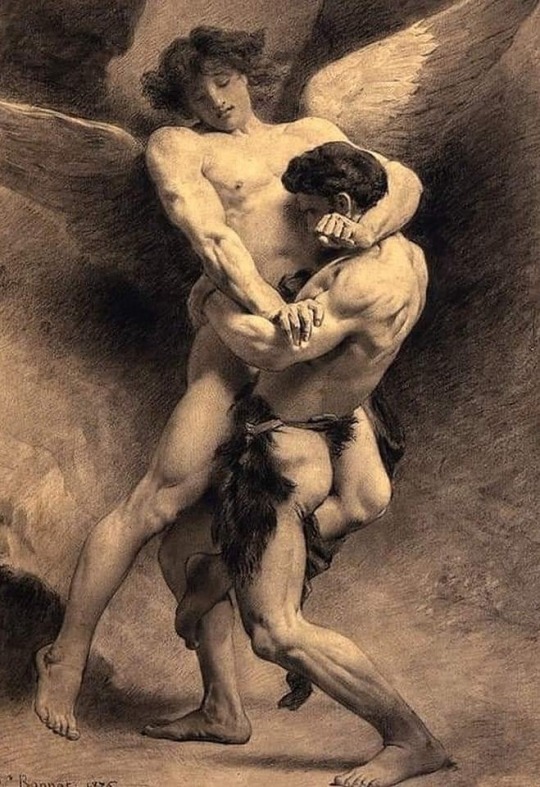
1 note
·
View note
Photo
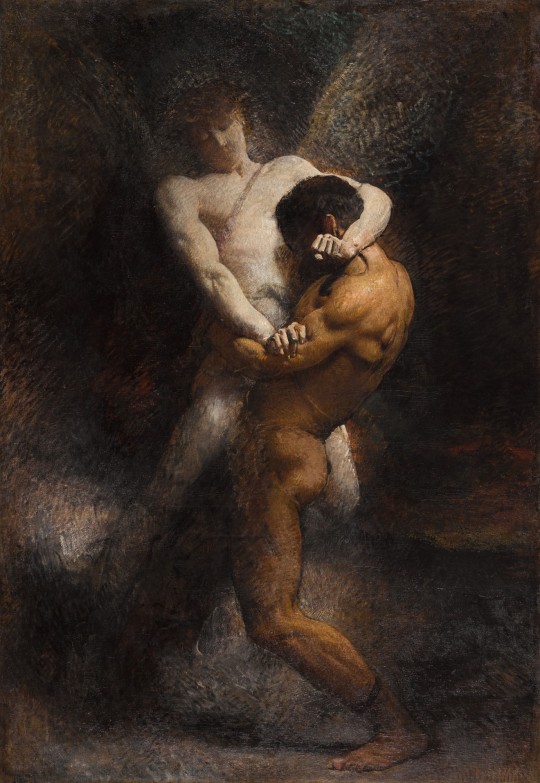
Jacob’s Struggle. 1876. Leon Bonnat French 1833-1922. oil/canvas. Sotheby’s July 2022. http://hadrian6.tumblr.com
2K notes
·
View notes
Text
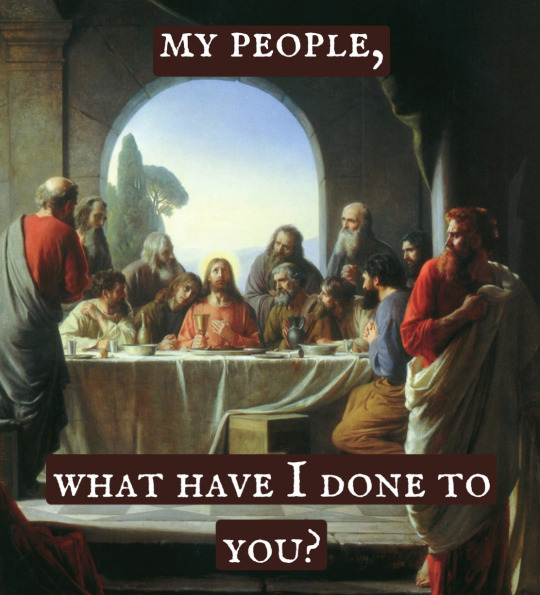
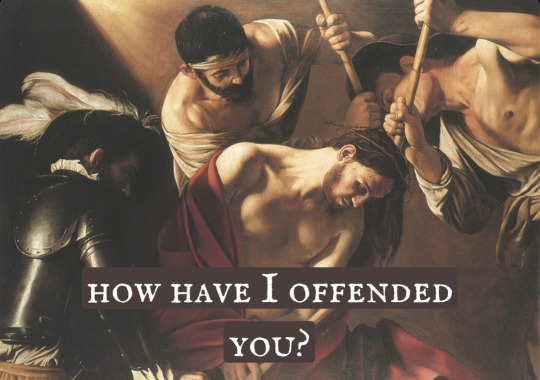
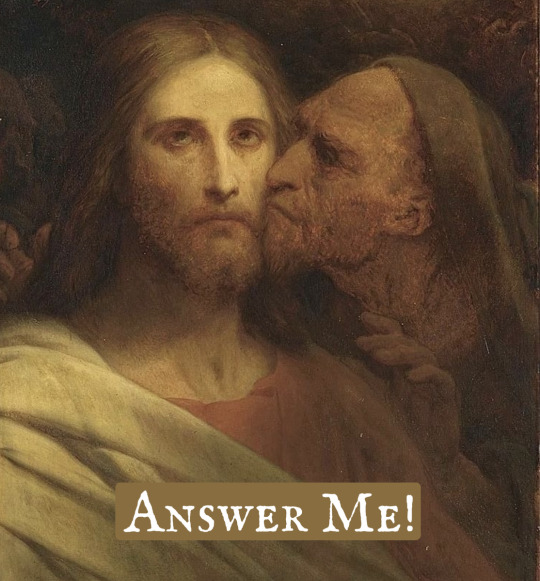

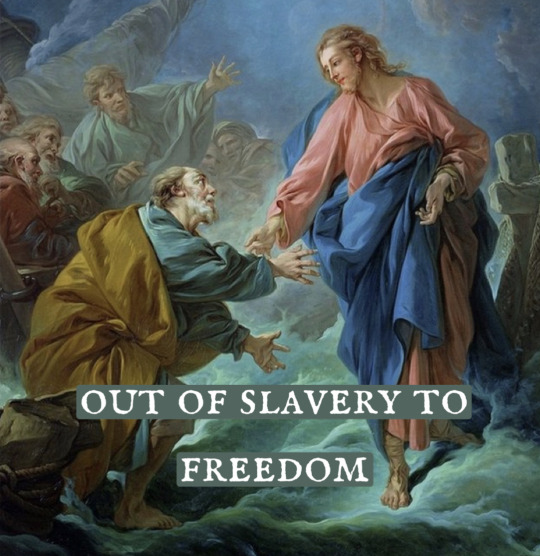


the Death on the Cross & Popule Meus: The Last Supper by Carl Bloch, 1870 // the Improperia: Popule Meus // The Crowning of Thrones by Michelangelo de Caravaggio, 1602-1604 // ibid // Le Baiser de Judas by Ary Scheffer, 1857 // ibid // Deliverance by Daniel Gerhartz // ibid // Peter Invited to Walk on Water by Francis Boucher, 1766 // ibid // Christ Carrying the Cross by Tiziano Vecelli, 1505 // ibid // The Crucifixion by Leon Bonnat, 1880 // ibid
299 notes
·
View notes
Text
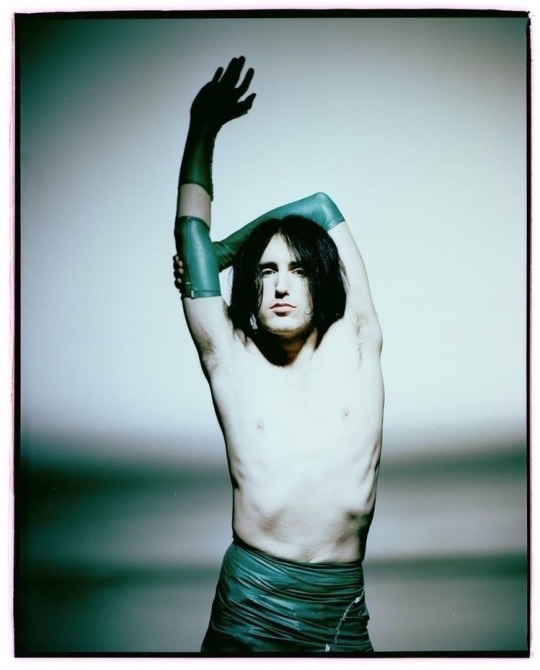
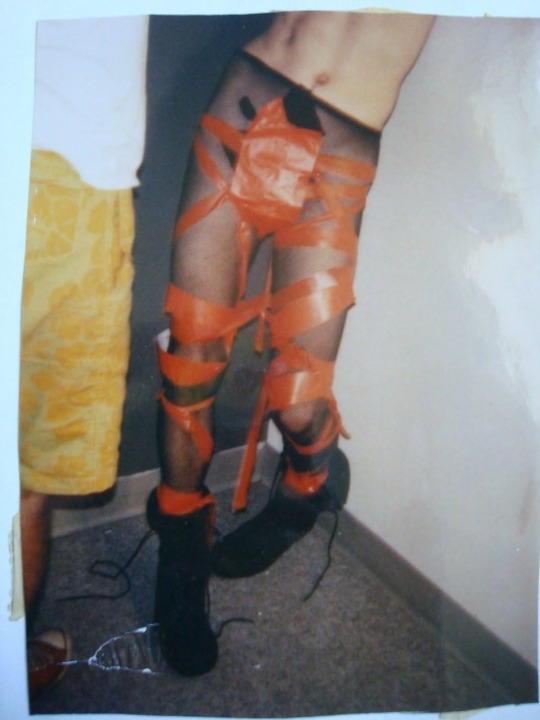

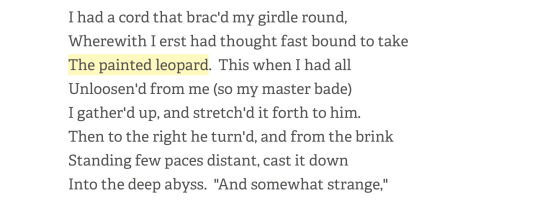


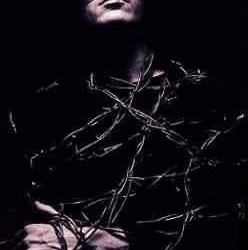
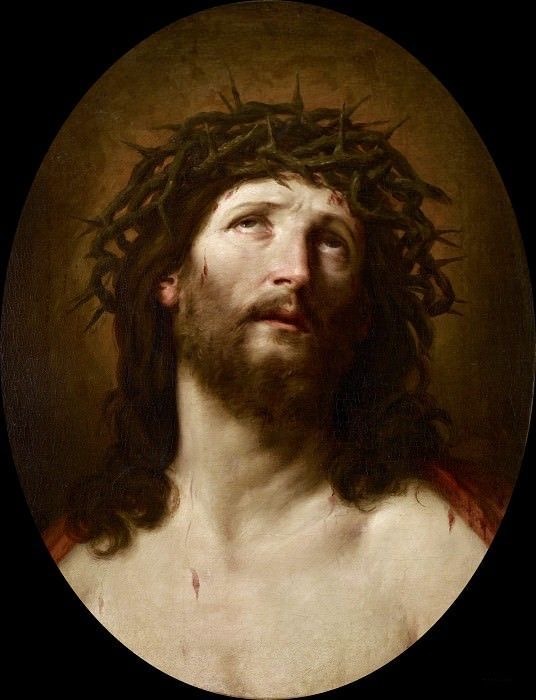


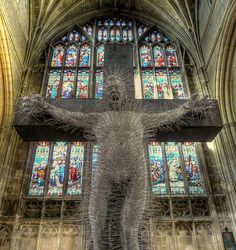

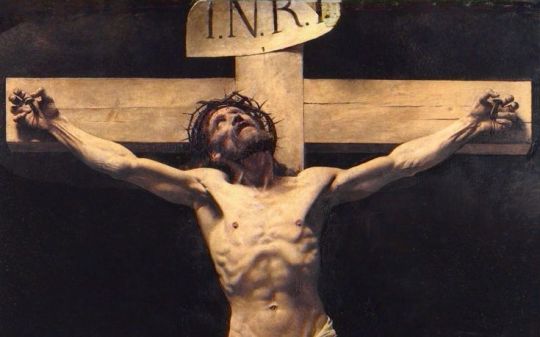


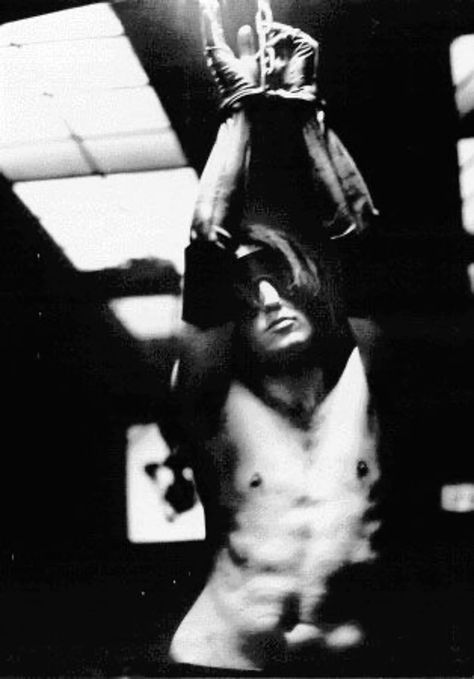
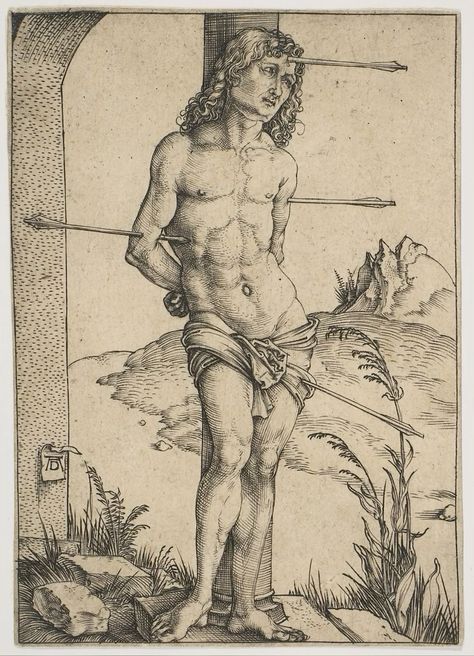


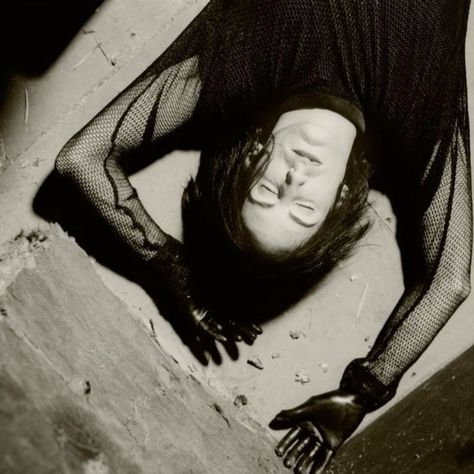
dante alighieri’s inferno, canto XVI; john everett milais, ophelia; guido reni, christ crowned with thorns; sanctified - nine inch nails; david mach, die harder; leon bonnat, christ crucifixion; martin schongauer, saint sebastian; albrecht durer, st. sebastian at the column; timothy cleary, tracery
#nine inch nails#trent reznor#nin#industrial#art#dante aligheri#john everett millais#guido reni#parallels#web weaving#david mach#martin schongauer#albrecht durer#timothy cleary
53 notes
·
View notes
Text
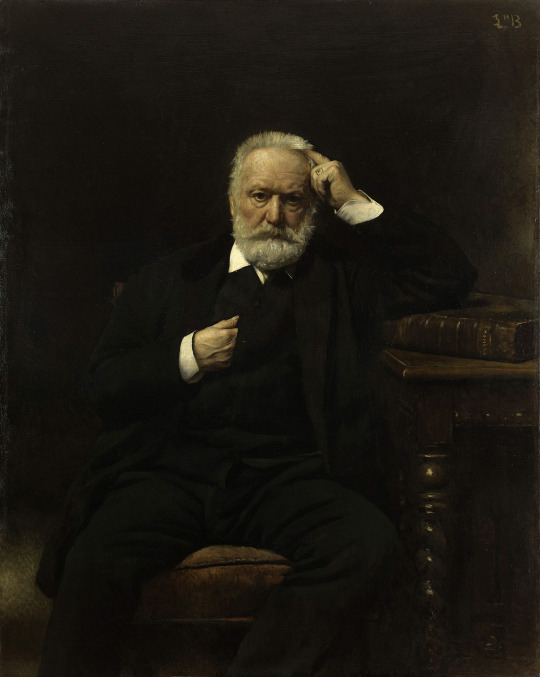
source: bishopsbox
Léon Bonnat, Portrait of Victor Hugo, c. 1877-1879, Museum of French History,Palace of Versailles.
Léon Bonnat, Retrato de Victor Hugo, c. 1877-1879, Museo de Historia Francesa, Palacio de Versalles.
10 notes
·
View notes
Photo



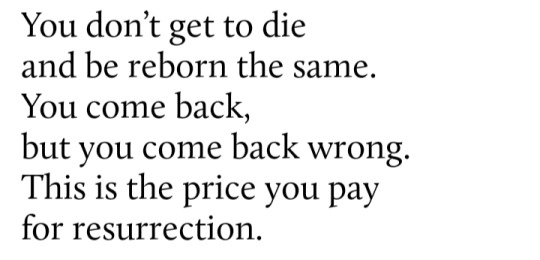
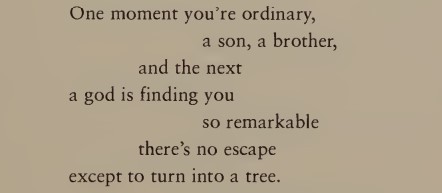



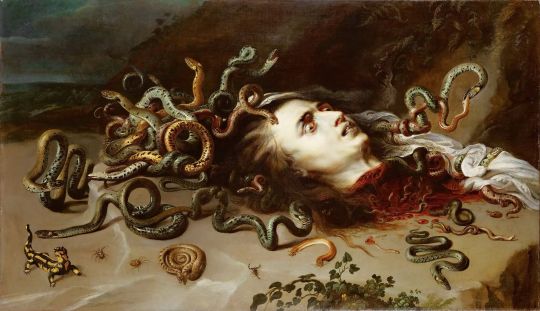

where to draw the line between the monstrous and the divine?
Code, Scherezade Siobhan | An Oresteia: Agamemnon, trans. Anne Carson, Aiskhylos | Love and Prayer, Simone Weill | Journal 1970-1986, Andrei Tarkovsky | Martyre de Saint Denis (1874-1888), detail, Léon Bonnat | The War of The Foxes, Richard Siken | Nathaniel Orion G.K. | Ovid at Fifteen, Christopher Bursk | On This Earth We’re Briefly Gorgeous, Ocean Vuong | Blue Rotunda, Louise Glück | The Waves, Virginia Woolf | Medusa (c. 1618), Peter Paul Rubens | Denouement, trans. Ellen Dori Watson, Adélia Prado
[ID: A collection of quotes and images from various sources.
1. Some people touch you and it is a form of taking. / Others touch you & it is a way of shaping.
2. And the grace of gods (I’m pretty sure) / is a grace that comes by violence.
3. Attention, taken to it’s highest degree, is the same thing as prayer. It presupposes faith and love. // Absolutely unmixed attention is prayer.
4. Why are they all trying to make me into a saint? / Oh God! Oh God! / I want to do things. Stop turning me into a saint.
5. Hera countered: You were born thirsting a mouthful of ichor from any God who would oblige. Suffering follows quench.
6. A close-up detail from The Martyrdom of St. Denis by Leon Bonnat. Saint Denis wears black robes around his waist as he kneels on the steps, reaching for his head. In the place of his head glows a light over the stump of his neck. To the left, a person can be seen recoiling in shock, as another person’s legs lie on the bloodied steps.
7. decompose eventually. We collide with place, which / is another name for God, and limp away with a / permanent injury. Ask for a blessing? You can try, / but we will not remain unscathed.
8. You don’t get to die / and be reborn the same. / You come back, but you come back wrong. / This is the price you pay / for resurrection.
9. One moment you’re ordinary / a son, a brother, / and the next / a god is finding you / so remarkable / there’s no escape / except to turn into a tree.
10. What I really wanted to say was that a monster is not such a terrible thing to be. From the Latin root monstrum, a divine messenger of catastrophe, the adapted by Old French to mean an animal of myriad origins: centaur, griffin, satyr. To be a monster is to be a hybrid signal, a lighthouse: both shelter and warning at once.
11. I am tired of having hands / she said / I want wings-- // But what will you do without your hands / to be human? // I am tired of human / she said / I want to live on the sun--
12. and I said to the star, ‘Consume me.’
13. A painting of Medusa by Peter Paul Rubens. He decapitated head lays on a rock, face frozen in shock and horror as blood pours from the wound. A variety of snakes writhe around her head amongst her hair.
14. I am beginning to despair / and can see only two choices: / either go mad or turn holy.
End ID.]
#retribution#prophethood#webweaving#ooh boy#EDIT: forgot to include the id for one of the quotes so so sorry#woe be upon ye#wubweaving
302 notes
·
View notes
